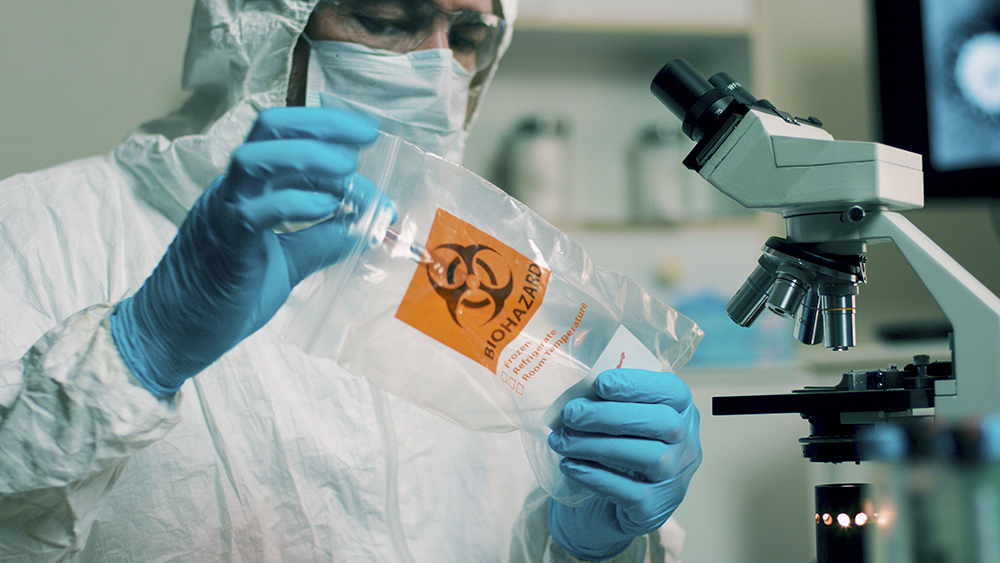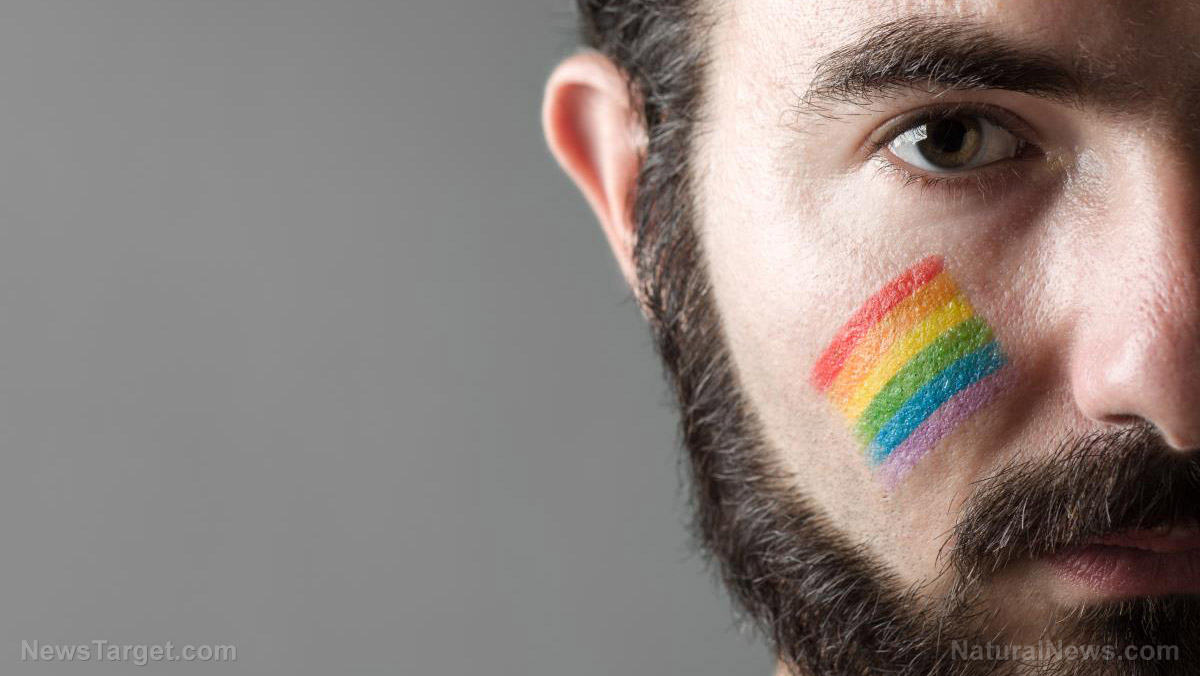Blue light exposure linked to increased risk of early onset puberty and future fertility issues
09/22/2022 / By Zoey Sky

The use of devices has become more common in recent years. Both adults and children often spend hours on phones, tablets, laptops and other devices for work, school or entertainment.
But according to a study, exposure to the blue light emitted by cell phones and tablets at a young age can increase a child’s risk of early onset puberty. Blue light exposure may also harm their fertility in the future.
The researchers who conducted the study presented their findings at the 60th Annual European Society for Pediatric Endocrinology Meeting.
Dangers of blue light
Findings from an animal study conducted by a Turkish research team revealed that blue light increased the levels of reproductive hormones in rats that were regularly exposed to it. Blue light exposure made the animals go through puberty earlier and caused changes to their ovaries that could potentially damage future fertility.
While the dangers of blue light to sleep have long been explored in many studies, experts are worried that the constant use of smartphones and tablets among young people could be more harmful than previously believed. Blue light exposure could also be linked to an increase in precocious puberty or early onset puberty, which occurs when a child goes through puberty too soon.
Research has found that early puberty may be linked to higher rates of depression and anxiety throughout life. It was also associated with breast and uterine cancer. (Related: Damaging effects of blue light worsen with age, study reveals.)
Blue light exposure and early onset puberty
Dr. Aylin Kilinc Ugurlu, one of the researchers, explained that enough blue light exposure altered melatonin levels, changed reproductive hormone levels and caused earlier puberty onset in rats. The longer the exposure, the earlier the onset, added Ugurlu.

The research team observed 18 female rats for the study. The animal subjects were divided into three groups:
- The first group was placed on a normal light cycle.
- The second group was exposed to six hours of blue light every day.
- The third group was exposed to 12 hours of blue light daily.
In both of the blue light groups, puberty occurred among the rats significantly earlier than expected.
The rats in the 12-hour blue light group also experienced puberty earlier than the six-hour group, suggesting a link between increased blue light exposure and time of puberty. The researchers also reported that rats in the two blue light groups had elevated levels of estradiol and luteinizing reproductive hormones, which is consistent with early onset puberty.
The researchers also recorded physical changes within the rats’ ovarian tissue. Although they are unsure how consistent these findings would be in humans, the changes observed in the rats hint at the potential dangers of prolonged blue light exposure.
“As this a rat study, we can’t be sure that these findings would be replicated in children but data suggests that blue light exposure could be considered as a risk factor for earlier puberty onset,” concluded Ugurlu.
But the study findings aren’t new. Research has shown that the rates of early puberty, especially in young girls, have been rising for decades.
The average age of puberty in the U.S. has dropped from 12 to 10 for females. In particular, Black and Hispanic are going through puberty around a year earlier on average.
There are also other negative long-term downsides linked to precocious puberty, like the link between early puberty and developing cancer, which is still unexplained.
Early puberty is also linked to many traumatic experiences caused by a young girl growing up too quickly.
Tips for protecting yourself and your kids against blue light damage
Even adults have to be careful about exposure to blue light. Follow the tips below to protect your kids and the rest of your family from the potential negative side effects of blue light exposure.
Set a technology curfew
Establish a nightly schedule and let your kids know that they are not allowed to use their phones or other electronic devices one hour before bedtime. If your kids are having a hard time following the curfew, set an alarm to help them remember to turn off screens at a certain time.
If they’re too awake for bed, plan other calming activities like reading or coloring. Lead by example and limit your use of screens before bedtime.
Create technology-free areas in your house
To ensure a restful sleep at night for the whole family, keep phones and other devices outside of the bedroom, especially away from the mattress.
This may be hard for some kids, but helping them maintain this healthy habit can significantly reduce nighttime blue light exposure. It also reduces the temptation to use devices before going to sleep and eliminates the possibility of being woken up by texts, calls or other notifications.
Use blue light filters
Try wearing special glasses that help filter out blue light to fight the negative side effects of blue light exposure before bed. You can also use blue light-filtering apps.
Finally, you can change the color tone of your phone or tablet screen toward warmer wavelengths of the light spectrum.
Change device settings
Many modern electronic devices include options for “night mode” or “dark mode” that change the screen background to black. These modes help reduce blue light exposure.
Ensure daytime light exposure
Getting exposed to bright light during the day helps synchronize circadian rhythms and promotes sleepiness during bedtime. Make sure the whole family gets plenty of bright, natural, daytime light.
Visit EyeHealth.news for more tips on how to boost your eye health and avoid the harmful effects of blue light.
Watch the video below to know more about the science behind the benefits of blue light-blocking glasses.
This video is from the Health Ranger Store channel on Brighteon.com.
More related stories:
Polyphenols in bog bilberry protect eyes against blue light damage.
Blue light found to accelerate aging and damage retinal cells.
Sources include:
Submit a correction >>
Tagged Under:
artificial light, blue light, children's health, discoveries, early onset puberty, electronics, Fertility, gadgets, health science, men's health, precocious puberty, prevention, reproductive health, research, sleep, technology, tips, women's health
This article may contain statements that reflect the opinion of the author




















